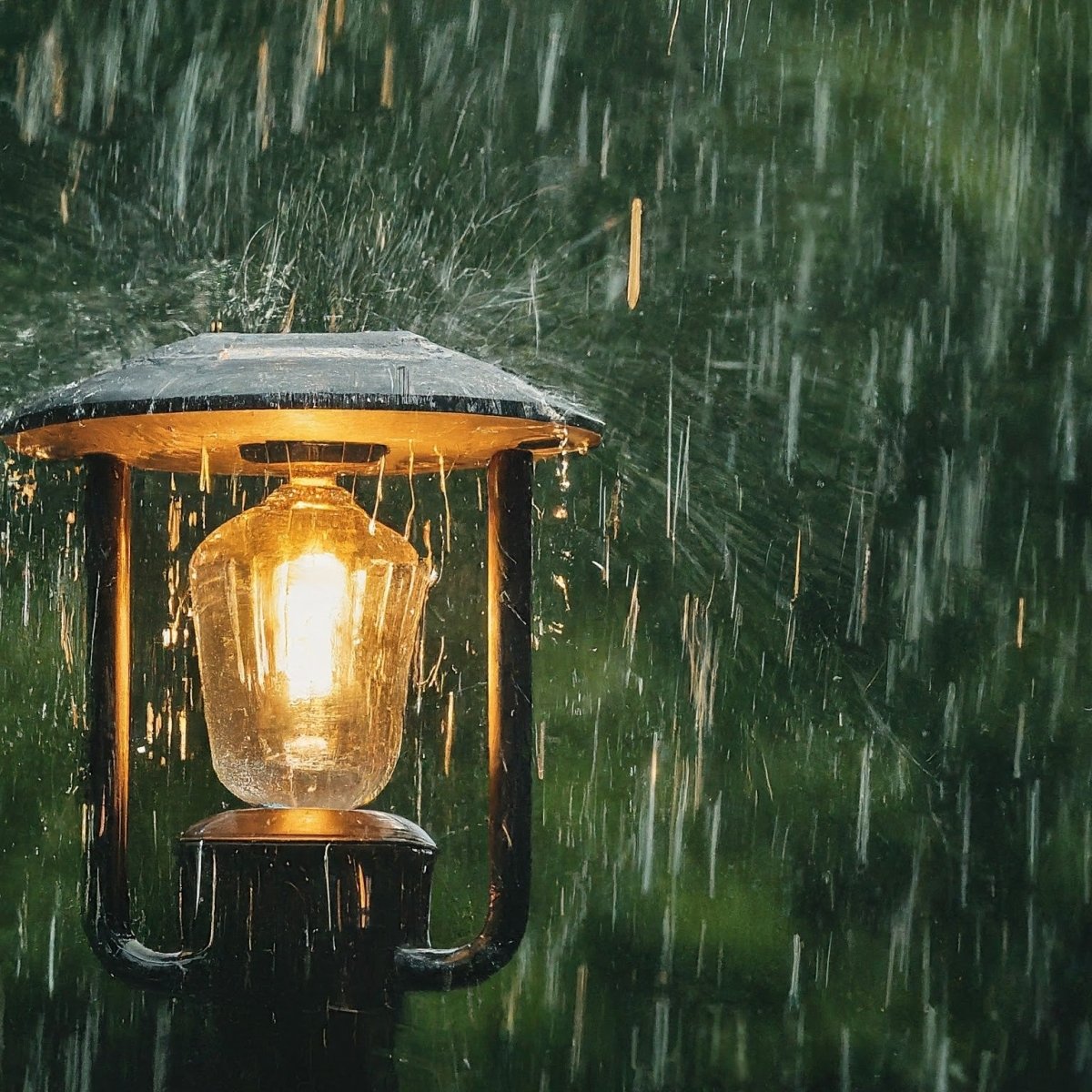Solar lights are now a popular option for outdoor lighting. They provide an eco-friendly and cost-effective way to light up pathways, gardens, and other outdoor areas. However, many users worry about whether rain can harm these lights. This article looks at how rain affects solar light, how to keep them safe, and what to consider when buying strong, weather-resistant models.

Understanding the Effect of Rain on Solar Lights
1. Water Resistance Ratings
Solar lights can bear various changes in weather conditions, such as rain. Most solar lights manufactured are designed to be water-resistant and come with an IP (Ingress Protection) rating, which explains how well the component protects against dust and water. It is best to opt for lights with a rating of at least IP65 for outdoor use, where they can bear water sprays from any direction and do well in a rainy environment.2. Possible Problems due to Longer Exposure to Rain
Many solar lights can resist water, but being in heavy rain for a long time can still be risky. This is especially true if the lights are not very good or if the seals break down over time. Possible problems include:
Water Ingress: Ingress of water into the case of a light can cause further damage to interior components, such as batteries or circuit boards, which can lead to malfunctioning or complete failure.
Corrosion: Constant exposure to water will eventually cause the metal parts of the solar lights to corrode, compromising the integrity of the structure and performance.
How to Protect Your Solar Lights from Rain Damage
1. Choose Good Solar Lights: The first way to keep your solar lights safe from rain damage is by buying those that have a high IP rating and are strongly built. Opt for models made of stainless steel or tough plastic that can withstand the weather.
2. Regular Check and Care: Check your solar lights regularly for any damages, especially around the seals and connections. If you notice any cracks or gaps, consider resealing them with a waterproof silicone that will stop water from seeping in.
3. Correct Installation: Solar lights should be appropriately installed with their panels facing the best direction to receive sunlight. Avoid putting them in any areas that can collect water, such as small depressions or near sprinkler systems.
4. Seasonal Storage: If you live where the winters are very cold or it rains a great deal, consider storing your solar lights during seasons when not in use. This may extend their life and reduce the risk of damage from poor weather conditions.
What to Check When Buying Solar Lights
1. IP Rating: As mentioned earlier, consider the IP rating of solar lights. The higher the rating number is, particularly in areas with frequent rain, the better; ideally IP65 or above.
2. Material Quality Opt for lighting made from non-rusting materials, such as stainless steel or high-quality plastic. This can prevent rust from setting in and provide a longer service life to your lighting. 3. Battery Protection Ensure solar lights contain a battery compartment that is well sealed. This ensures the battery will not be exposed to moisture and cannot cause damage.
Conclusion: Can Solar Lights Be Used When It Rains?
Rain is not an issue in respect to solar lights if they are of good quality and have the correct IP rating for outdoor use. Choosing the right lights, performing proper maintenance, and being more circumspect will ensure that your solar lights work just fine even when it rains. Purchasing robust weather-resistant solar lights will keep your outdoors safe, protect your investment, and serve you long into the years reliably.



